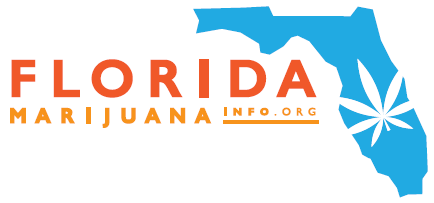The Medical Necessity Defense in Florida
The necessity defense comes from English Common Law, which is still law in many states today.
Where did the cannabis medical necessity defense come from?
One of the earliest acts of the Florida legislature was a reception statute that adopted the English Common Law up to the point of July 4th, 1776. A necessity defense is a justification, or exculpation, for breaking the law, and argues that a defendant should not be held criminally liable for their actions, because they broke the law in order to prevent an even greater harm.
Generally, for a medical necessity defense to be successful, the defense must show that the defendant did not bring about the circumstance which caused the unlawful act (for example, did not cause their illness or disease which created their medical necessity for cannabis). Attorney Jason D. Sammis, with the Sammis Law Firm based out of Tampa, explains that the defendant must also have, “reasonably believed under the circumstances that an immediate emergency or danger existed which threatened significant harm to the defendant or another person; the defendant had no way to avoid the emergency or danger except by committing the crime charged; and the harm that the defendant sought to avoid by committing the criminal act must outweigh the harm caused by committing the criminal act.”
“It depends on the judge and the county you’re in. Most judges don’t even seem to know it exists,” said Michael Minardi, member of NORML and a Florida attorney and medical necessity defense expert who has successfully won many medical marijuana cases. Minardi said the success of a medical necessity defense also “depends on the nature and extent of your illness.”
Necessity Defense Available Statewide
However, Ian Christensen, an attorney with Health Law Services, says that establishing a medical necessity defense is not dependent on which county in the State of Florida you live in. “There have been some who are not convinced that this applies to the entire state, that you do not have to be terminal to qualify, or that you do not have to be arrested. These are no doubt valid concerns, therefore I would like to clear up some of the confusion. First, the medical necessity defense applies to the entire state of Florida. This is not due to the Jenks ruling, however, but rather due to one of the first statutes enacted by the State of Florida. See Jenks, 582 So.2d 676, and FS § 2.01, which states:
“The common and statute laws of England which are of a general and not a local nature, with the exception hereinafter mentioned, down to the 4th day of July, 1776, are declared to be of force in this state; provided, the said statutes and common law be not inconsistent with the Constitution and laws of the United States and the acts of the Legislature of this state.”
The medical necessity defense applies to the entire state of Florida, since Florida is a common law jurisdiction. Therefore, any person that states that Florida Statute § 893.03(1)(C)(7) precludes the common law defense of necessity is incorrect, since this has been settled twice by the First District Court of Appeals. The Supreme Court of Florida denied certiorari in both Jenks and Sowell, which allowed the law to stand. There is no other conflicting case law in any other Appeals District that holds otherwise. Therefore, this is the highest court in the land to resolve this issue, and it is the law in Florida.” Christensen said.
According to attorney Jason Sammis, “The necessity defense was recognized at common law and had not been clearly rejected by the Florida legislature. The necessity defense under Florida law has specifically been recognized by the Florida Supreme Court, and is more clearly established than under Federal law. In fact, the necessity defense has its own standard jury instruction approved by the Florida Supreme Court. Under Florida law, it is a defense to a criminal charge if the defendant committed an act out of necessity.”
Christopher Ralph is another Florida attorney who works on cases where patients raise a medical necessity defense. Ralph works for Health Law Services, a patient advocacy and medical rights law firm based out of Jacksonville. “First of all, in order for them to even prosecute somebody, and that’s where your affirmative defense comes in, the prosecutor has to have a good faith belief that they can overcome a medical necessity defense.”
History of Medical Necessity Defense in Florida
At Health Law Services Christopher Ralph started investigating the history of the medical necessity defense in Florida. “Well then we started looking at the cases in the State of Florida, and what we have found, and this is where it comes into the laws that we have now, what we have found is that in 1978 there was a Supreme Court case, which was Linda Bourassa v. State of Florida, it started off as State of Florida v. Linda Bourassa, but she appealed her sentence. She appealed this stating her sentence was unconstitutional because they were classifying cannabis as being more harmful than opiates, which can cause death. Now in that case, the appeals court judge overturned the sentence, not the conviction, of course she was found guilty because she had less than 5 grams of cannabis on her. But they overturned her sentence and ruled that it is unconstitutional for the State of Florida to classify cannabis as being as harmful, or more harmful, than opiates. Now this really comes back to bite the state of Florida years down the road, or really help them, depending which side you’re on. And then you had the 1989 case of Elvy Musikka”
Medical Necessity Defense for Cannabis- 1989 case of Elvy Musikka
Elvy Musikka was a Florida woman with glaucoma who was arrested in 1988 for cultivating 6 cannabis plants. Musikka’s physician was an ophthalmic researcher at Miami’s famous Bascom-Palmer Eye Institute, he testified that “if marijuana were legal I would have prescribed it for Elvy Musikka’s medical use in the treatment of glaucoma.” Musikka’s physician also testified that she would go blind without marijuana. The court allowed her to introduce a common law medical necessity defense. Judge Mark E. Pollin wrote in his decision that, “This is an intolerable, untenable legal situation. Unless legislators and regulators heed these urgent human needs and rapidly move to correct the anomaly arising from the absolute prohibition of marijuana which forces law abiding citizens into the streets – and criminality – to meet their legitimate medical needs, cases of this type will become increasingly common in coming years. There is a pressing need for a more compassionate, humane law which clearly discriminates between the criminal conduct of those who socially abuse chemicals and the legitimate medical needs of seriously ill patients whose welfare and very lives may depend on the prudent therapeutic use of those very same chemical substances.” Later in 1988, Mussika would go on to become a federal marijuana patient as part of the FDA’s Compassionate Investigational New Drug program. She is currently one of four federal patients that still get 8 ounces of marijuana in the form of over 300 joints a month.
“Then in 1989, Kenneth and Barbara Jenks were found guilty in Duval County, Florida. They appealed their conviction, and the appeals court overturned their conviction and in doing so they created the requirements, the elements that need to be met to have an affirmative defense from prosecution. Meaning you could still be arrested, but of course, you would have to go to court to prove these elements. That was the appeals ruling that was cemented in 1991. Shortly after that, the Florida legislature reclassified cannabis from a schedule 1D to a 1C7. They tried to say that the common law defense no longer applied because it was reclassified as less harmful. The Supreme Court in Sowell, a 1998 case, actually upheld the medical necessity doctrine in saying that it does still apply, even though the medicine was reclassified, because it’s still the same medicine. Ever since that case there really hasn’t been anything going on in Florida with anyone trying to use the medical necessity defense. And the few attorneys I’ve talked to are really saying that the only reason why it hasn’t been accepted is because the judge just says its a 1st District Court of Appeals ruling, and what we found is that it is a statewide ruling. The law that requires the judge to hear the 1st DCA ruling is statute 2.01, which is the Common Law statute.” Christopher Ralph explained.
Amendment 2 Needed To Better Protect Patients
However many attorneys like Michael Minardi believe the necessity defense provides inadequate protection for patients, and that the legislature and the people need to do more, by passing legislation like Amendment 2. “The low-THC bill [1030] is a sad attempt to legalize medical cannabis. I don’t think that it provides sufficient medicine for patients. And if Amendment 2 is passed, I think that hundreds of thousands of people in the State of Florida will benefit. We’ll see a lot less addiction to pills, hopefully a lot less suicides, we’ll see a lot less problems with crime. People will actually be able to live a better quality of life. Amendment 2 is absolutely necessary. For anyone who says that it (medical necessity defense) makes it legal for certain people, I ask the people that my clients with AIDS, fibromyalgia, severe anorexia disorders, severe chronic pain, and PTSD, why they are facing criminal charges right now with those types of conditions, which would be allowable under Amendment 2 for people to use cannabis for, are still being prosecuted in this state right now.” Minardi’s advice to anyone in Florida who is interested in pursuing a medical necessity defense, “Get a lawyer, someone who actually knows what they are doing.”
For more information on Michael Minardi and Minardi Law go to: www.minardilaw.com
For more information on Ian Christensen, Christopher Ralph, and Health Law Services go to: www.healthlawservices.org
For more information on Jason D. Sammis and Sammis Law Firm go to: http://www.criminaldefenseattorneytampa.com/marijuana-crimes/medical-necessity-defense/













 OMD Agency
OMD Agency
Recent Comments